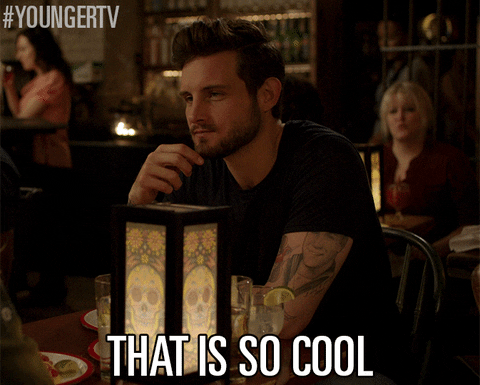Issue #52
Guten Morgen!
We wish you a wonderful start into your weekend and week with the newest Krautshell edition.
Enjoy and ping us for more!


Anna Christian
FIRST, SOME SOLID INTEL:
#RoadToBTW21 Baerbock’s Industry Pact
This week, Green Chancellor-candidate Annalena Baerbock presented her plans for a pact with German industry in an interview (only in German, we’re sorry) with the newspaper Handelsblatt. Her major transformation plan for climate-neutral wealth and a competitive industry consists of three layers. First, Baerbock wants to introduce climate contracts for companies shifting their production to make it more climate neutral. According to Baerbock, the state has to provide some payments in advance to these companies to, for example, make steel production via hydrogen technology financially viable. Second, Baerbock is planning a mechanism similar to a carbon border tax. She also criticized the current government for not protecting the German industry enough: while German companies are striving to be climate neutral in their production, their efforts are undermined by Chinese companies dumping steel in international markets. Finally, she wants to strengthen the EU emission certificate trading scheme and by that, ultimately, increase the price on CO2 emissions to strengthen those companies that are carbon neutral.
The Greens now have to prove they are not just doing some feel-good campaigning, throwing around warm buzzwords. A key to that is certainly industry competence, something that has historically been a “blind spot” for the Greens. There are already a lot of famous entrepreneurs like ex-Siemens boss Joe Kaeser backing up Baerbock and her plans. Her ideas also come at a strategically important time: one week before the Greens’ federal party convention, where the official election program will be decided. If you want to know more about Baerbock, her plans, and chances, feel free to ping us.
50+1 Rule in Soccer: No Problem for Germany’s Competition Authority
You may remember a few weeks ago, we reported on the proposed plans for a “European Super League.” Those who followed the developments closely will have noticed one interesting thing: there were no German teams involved in the endeavor. While one reason for this was undoubtedly the fact that German clubs do not have crippling amounts of debt like some of their Spanish, Italian, and English counterparts, there was another, uniquely German reason for this: the 50+1 rule.
Essentially, the rule is a mechanism to ensure that supporters and members of German soccer clubs retain majority voting rights within the organization. As the name suggests, for a club to compete in Germany’s top flight, the Bundesliga, a club must own at least 51% of its own voting rights. These measures ensure that teams cannot go against the wishes of their fans, hence no German involvement in the “Super League.” This is in direct opposition to other leagues, where Russian oligarchs and multinational corporations pump billions into teams, making the title race a question of who spent the most. With an eye towards these practices in other countries, Germany’s independent competition authority (German: Bundeskartellamt), at the request of the German Football League (DFL), examined whether the 50+1 rule infringes upon competition law. The results were to provide some legal certainty should teams challenge the rule in court in the future. The outcome: the rule itself doesn’t impede competition because it keeps the playing field level, but there is a loophole in the rule the Kartellamt criticized as “problematic.” In special cases, private ownership of more than 49% is possible. This exemption has already been granted to three teams in Germany, such as VfL Wolfsburg, which is 100% owned by Volkswagen. According to the competition authority, competition can be distorted when membership-owned and investor-financed clubs play alongside one another. Critics of the rule may use this criticism to further their case, so stay tuned for more.
Attempting to Make Amends: Germany Recognizes Herero and Nama Genocide
Although we already told you about this story in last week’s LSS, we wanted to give this important topic the space and explanation it deserves: Germany has officially recognized its atrocities against the Herero and Nama people between 1904 and 1908 as what it was: a genocide. To be precise, during Germany’s colonization of modern-day Namibia, colonial troops killed, tortured and displaced tens of thousands of people from the Herero and Nama tribes after an attempted uprising against colonial rule. Experts estimate that about 80 percent of the Herero and Nama people were killed during these four years.
That being said, recognizing the atrocities as a genocide and calling it a day isn’t enough: there are two, very crucial further steps: apologizing and finding some way to make amends. German President Frank-Walter Steinmeier plans to do this first part by asking for forgiveness in a ceremony in front of the Namibian Parliament. The second part is a little more contentious. Germany has reached an agreement with the Namibian government to pay 1.1 billion euros in reconstruction and development aid, but does this amount even begin to make up for the atrocities? For the Council of Chiefs, a body representing the people of both tribes, the answer is no. Beyond the terrible loss of human life, the genocide also resulted in a loss of land and livelihood for tens of thousands of Herero and Nama people, causing a multi-generational cycle of disenfranchisement still present over 100 years later. In this context, tribal leaders believe the 1.1 billion euros do not even begin to address the socio-economic consequences of genocide. For them, the most important point is simply that the well-being of the victims’ descendants is improved, whatever the cost may be. We hope you now have a better understanding of the significance of last week’s developments. Feel to reach out to us if you want to find out more.
Who Can Serve Me My Pizza?
According to Politico, out of approximately one million jobs lost during the pandemic in Germany, nearly 400,000 were in the hospitality sector. Question remains: how do we go on, now that dining at restaurants and drinking at bars is allowed again? And, who will serve me my pizza? Not just in Germany, but across the EU, governments are trying to find ways to navigate their economies through the pandemic while restaurant owners fight for survival. Uncertainty is the key word: it’s not clear whether they might have to close again should for instance a new virus variant emerge. Furthermore, the ever-present question of whether there will ever be a return to “normal” again. Will enough people return to offices and want to share lunch in a restaurant? Or, will the whole industry undergo a transformation?
Restaurateurs have become creative as this story of one owner in Berlin shows. There are innovative concepts for takeout and outdoor dining, but this all might not be enough. The hospitality industry is responsible (directly and indirectly) for over 9 million jobs in Germany. Still, it doesn’t get that much political attention. While hairdressers were allowed to reopen quite early, restaurants and bars were “sacrificed” for the sake of public health. And frustration is high among restaurateurs or, as the owner of the Berlin restaurant puts it: “When automobile industry coughs, everybody jumps.” For restaurateurs, driving up the vaccination rate seems to be the only sustainable solution. Let’s hope they are heard because we probably all need to go out again, finally.
Care Reform: It’s Gonna Cost a Lot
Have you ever rented a place and then just found out that the former tenants left you with some things they should have fixed? Well, that’s the situation in which the new Federal Government will find itself after the elections in September when it comes to the care reform (we reported). Just a quick recap: it incorporates higher wages for caregivers, financial relief for care recipients and some other stuff. Care is financed partially by a government insurance mechanism, and as the population ages, the portion paid by the government is increasing steadily. Now, it was revealed that the current government already made a reform, but didn’t really consider how it would be financed.
Gernot Kiefer, Vice-President of the health insurance association, calculated a financing gap of €2 billion. Olaf Scholz, Vice-Chancellor and Federal Finance Minister, says “No worries, this will all be covered.” However, Kiefer is sure that already 2022 an increase of private contributions (every employee has to make those with his or her taxes) is inevitable. This would mean higher burdens for private households to compensate for the government’s missing share. Overall, the reform plans only seem to be a fig leaf during campaign times and no durable solutions are in sight.
Denmark Says “No Thank You” to Refugees
Normally, when you hear about Denmark in the news it’s in the context of being one of the “happiest countries in the world,” often accredited to their progressive policies in areas like healthcare or the environment. However, there are certain areas in which the Scandinavian country is not as open-minded as one might think, and this week Denmark made headlines for one of those reasons: their migration and asylum policy. On Thursday, the Danish Parliament approved a law by 70 votes to 24 that will see asylum seekers sent to countries outside of Europe while their cases are processed.
While this sort of anti-immigrant sentiment is considered commonplace among Europe’s growing far-right parties, the surprising part about this development is that the Danish government is in fact headed by the country’s Social Democrats, who identify politically as center-left. In recent years, and especially since the massive influx of refugees into Europe in 2015, Danish politics have become increasingly hostile towards foreigners. In fact, in 2017, the Social Democrats overhauled their party’s political agenda, adopting anti-immigration language often used by right-wing parties in their official program in an attempt to win over voters. After the law was passed, Rasmus Stoklund, the Danish Parliament’s spokesperson on immigration and integration stated that now refugees will clearly know they will be sent back to a country outside of Europe if they apply in Denmark, and therefore hopes “that people will stop seeking asylum in Denmark.” However, the European Commission also weighed in on the new law, questioning its compatibility with Denmark’s international obligations, and explaining that, “[External processing of asylum claims] is not possible under existing EU rules or proposals or under the new pact for migration and asylum.” Whether the Danish will actually be able to implement this law is still questionable. We’ll keep you posted.
LONG STORY SHORT:
- Suing the Ex-Chancellor: This week, it came out that former German Chancellor Gerhard Schröder has to pay approximately €22,000 in damages to his wife’s, Soyeon Schröder-Kim, ex-husband. Schröder-Kim’s ex went to court in South Korea, where adultery is still considered as a defamatory misdemeanor and made the ex-Chancellor responsible for his failed marriage. Well, Schröder seems to be happy in his marriage, so we’re assuming he’ll pay.
- Get a Flag: This week, CDU reform plans to strengthen feelings of German identity and belief in the constitution became public. When reaching the “Abitur” (comparable to finishing high school) every German pupil shall be given a copy of the German constitution and a German flag. Quite interesting for a country in which patriotism still leaves a bad aftertaste in many people’s mouths.
- Spying: After it came out that Danish intelligence services supported the NSA in spying on European top-politicians, Angela Merkel and Emmanuel Macron now aligned on a demand for clarification. Both clearly stated that spying on friends is inacceptable – a claim with which we can hardly disagree. The Danish government assured its support in shedding some light on the allegations.
WHAT’S ON OUR MINDS
CONNECTED
After my last WOOM two weeks ago I was told that I tend to rant (a tiny little bit) in my comments, even if very explicitly promising not to do that.

Which is why this week, instead, I will share some very exciting news for us as a company: The successful completion of NordLink, the world’s longest subsea electrical interconnector, connecting Germany and Norway, a project we have accompanied on the political level since its very beginnings.
This interconnector will provide green energy in Europe, balance differences in energy supply from sustainable sources (you know, ‘cause the wind does not always blow exactly when we decide to ramp up our electricity usage) and is generally an immensely important building block in Europe’s efforts to reach its climate goals.

On top of all that, the project NordLink was the cornerstone for Erste Lesung GmbH, the same public affairs agency that’s providing you with some intel and a thought from the EU & Berlin bubble today. And much like Erste Lesung GmbH, this groundbreaking project crosses borders, connects different arenas, and promotes an open exchange.
You will understand that when after 10 years, the NordLink was officially inaugurated last week by, among others, Chancellor Angela Merkel, we all were quite moved and grateful for having been a part of the journey.

OK, enough of that. Next time, I am sure I will find a topic for constructive criticism.

